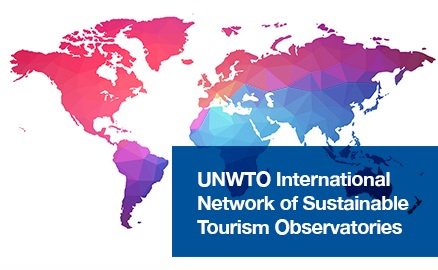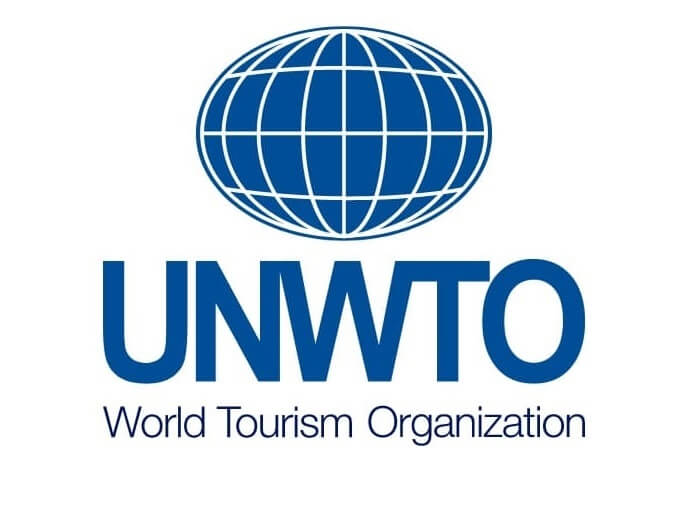
Jamaica Tourism Minister: Global mainstreaming of small and medium-sized tourism enterprises
The Minister of Tourism for Jamaica, Hon. Edmund Bartlett, CD, MP, is attending the World Travel & Tourism Council (WTTC) Global Summit 2018 in Buenos Aires, Argentina, which is set to begin tomorrow on April 18. Preceding the opening, he attended a T20 “Meeting of Tourism Ministers” at which he submitted a policy brief on Global mainstreaming of small and medium-sized tourism enterprises. The support received was overwhelming. Here eTurboNews shares the brief in full:
Background
This paper seeks to bring attention to an often under-discussed element of our tourism product- the importance of micro, small and medium-sized tourism enterprises (SMTEs) to the sustenance and vitality of the sector. The time has come for us to seriously revisit our strategies for supporting the expansion and improvement of this critical sector of the tourism market. We are well aware that one of the recurrent concerns among many Jamaicans is that the tourism sector does not sufficiently support sustainable development and that there is negligible reinvestment of tourism profits into the domestic economy.
While the benefits and positive contributions of the tourism sector are well-documented and self-evident, there is an emerging global view in many parts of the world that the tourism sector has not maximized its potential to fully contribute to sustainable development. This is due to heavy reliance on foreign imports within the sector, high rates of leakage, insufficient linkages with other segments of the economy and the belief that tourism revenues remain heavily concentrated within the country’s major hotels, especially through the expansion of the all-inclusive concept. I accept the general implications of these views and, through this paper, I am committed to changing this perception by placing greater emphasis on the role of small and medium-sized tourism enterprises (SMTEs) in promoting our tourism growth agenda.
For the purpose of this paper SMTEs can be defined as a collection of services and goods providers supporting the country’s tourism sector. A micro enterprise is defined as an enterprise having an annual turnover of less than US$100,000 with 1-3 employees. A small enterprise, on the other hand, is defined as an enterprise with an annual turnover between US$100,000 and US$500,000 with 4-10 employees while a medium-sized enterprise is an enterprise with an annual turnover between US$500,000 and US$2,000,000 with 11- 50 employees.
Contribution
SMTEs contribute invaluably to tourism development in Jamaica. Jamaica’s tourism sector is dominated by a vast network of small and medium-sized tourism enterprises (SMTEs) including: artisans and craft vendors, attractions and tours, transportation, beauty shops and textiles, duty-free stores, restaurants and eateries, bed and breakfasts, guest houses, farmers and distributors of hotel supplies. The vast network of SMTEs constitute the backbone of the sector, contributing significantly to the authenticity and quality of the tourism experience, enhancing destination competitiveness and contributing to enhanced brand image, the forging of positive local networks and increased productivity.
These enterprises are recognized as important drivers of economic growth and development in Jamaica by creating employment, facilitating wealth creation and forming the backbone for private sector growth and expansion. The activities of SMTEs also create a value chain within the communities and environs of their operations.
Community-based tourism enterprises (CBTEs), for example, pursue sustainable tourism and return economic, cultural, social and environment benefits to the communities in which they operate, either in whole or through joint ventures. They promote the local tourism value chain through linkages, where appropriate, to agriculture, arts and crafts, food service and related small businesses in the communities. Many are also involved in various forms of community outreach.
Many small enterprises in the accommodation sector are already involved in arrangements in which local farmers and community providers supply inputs for food and beverage, entertainment, furnishings and general hotel operations.
Globally, SMTEs account for most of the indirect jobs created through tourism-related activities. They generate employment, income opportunities and wealth by providing a wide array of oftentimes unique and authentic goods, services and experiences for visitors and by supplying many categories of good and services to hotels, especially during peak seasons, such as fruits and vegetables, meat and poultry, handicrafts, chemicals, other hotel supplies.
Cultural and heritage tourism
SMTEs are also the main drivers of cultural/heritage tourism. International tourism trends are pointing to a shift from the traditional ‘sun, sea and sand’ phenomenon towards interactive experiential tourism, one of tourism’s fastest growing sub-sectors, appealing to markets interested in gastronomy, nature, heritage and cultural experiences in the destinations they choose. SMTEs promote cultural/heritage tourism by assuring visitors of an authentic experience. They facilitate the consumption of indigenous cultures through the promotion of a wide range of activities such
as botanical gardens, marine and safari tours, adventure tours, waterfalls, caves, indigenous sites/villages, museums and galleries, archaeological sites, cabins and huts, local restaurants and live music experiences.
SMTEs facilitate unique gastronomic experiences and indulgence in authentic and vibrant folk forms, art and craft and musical heritage. They also stage appealing community festivals and events that showcase local cuisine and agriculture and the heritage of diverse ethnic, social and religious groups.
SMTEs and tourism growth agenda
As we move to fulfill our mandate to reposition tourism as the catalyst of job creation and inclusive growth for all, we believe that there is significant scope for the expansion of the SMTE sector which will allow for more average citizens to capitalize on the vast opportunities for supplying inputs to tourism entities catering to the visitor experience in areas such as accommodations, restaurants, cultural and creative enterprises, entertainment, attractions and tours, agriculture, manufacturing, foreign exchange trading, duty-free shopping and other services.
The involvement of small and medium-sized tourism enterprises (SMTEs) and community-based tourism enterprises (CBTEs) should be encouraged as much as possible. They should be encouraged to take advantage of the competitive strengths of small enterprises e.g. in meeting niche markets and specialized goods and services as exists in food and beverage and creative industries.
In many countries, the long-term structural issues of productive capacity and competitiveness of domestic industries require strategies to improve competitiveness such as identifying suitable niche markets, technology adaptation and innovations, compliance with international standards, reduction and control of production costs and improving marketing information and distribution networks (e.g. through inter-industry consultations, buyer-seller meetings, trade promotion events and expos).
A closer look at our strategic vision for the growth of the tourism sector over the next five years will reveal that the growth of SMTEs will support several of our key objectives such as: strengthening linkages with other sectors of the economy, particularly the agricultural and
manufacturing sectors; strengthening the benefits derived from the industry by local residents and communities; promoting broader participation by all Jamaicans; and ensuring the safety, security and sustainability of the natural and built environments.
Indeed our reinvigorated support for SMTEs is aligned with our broader thrust of strengthening current tourism linkages and identifying new areas of potential linkages with a view to maximizing the potential of the tourism sector for generating sustainable economic livelihoods for a larger number of locals, particularly those residing in communities in and around resort areas. In order for SMTEs to maximize their full potential, we recognize that they will need our help to build their capacities to meet the demands.
Strategies and initiatives
We have already identified the main challenges facing SMTEs such as: high level of informality, lack of commercial orientation, lack of market information and market access, insufficient access to capital for upgrading, limited customer training and low ICT diffusion. In Jamaica, the work of some of our agencies, particularly the Tourism Linkages Network has been helping SMTEs to overcome some of these challenges.
The Tourism Linkages Network for example continues to strengthen and encourage vibrant linkages through a number of initiatives focusing primarily on human capacity-building, assisting micro, small and medium-sized enterprises with their development, greater integration of local products and services into the tourism product and expanding the country’s potential to tap into new segments of the tourism market. This is evident in the establishment of five networks (Gastronomy, Sports & Entertainment, Health & Wellness, Knowledge and Shopping) to diversify the tourism product; to stimulate increased consumption of local goods; to stimulate entrepreneurship and employment; and to generate and retain more of the country’s tourism earnings. We have sought to improve the domestic credit environment for SMTEs through our 1 Billion JMD revolving loan scheme for tourism enterprises.
In 2016, we also initiated the National Community Tourism Portal. This portal has become an excellent marketing tool designed to help local community-based tourism enterprises (CBTEs) keep pace with the competition by: building awareness of community tourism in Jamaica;
providing comprehensive and engaging information on Jamaica’s community tourism product; providing an easy means for making community tourism bookings; and providing CBTEs with affordable and cost effective e-marketing services. The Tourism Product Development Company (TPDCo) also conducts tourism awareness activities and provides technical assistance on ecotourism, Bed & Breakfast (B&B), agro-tourism, cultural heritage tourism, and arts and crafts development projects.
The potential of the craft industry as a driver for growth in the earnings from tourism has long been acknowledged, in spite of its largely informal structure and other challenges to structured development. Five artisan villages are slated to be built across the island. They will be one-stop-shop facilities where visitors can see the creation and merchandising of craft items, while enjoying authentic Jamaican entertainment and leisure activities. It will also provide an avenue for Jamaican artists and craftsmen to expose and express their creativity by producing unique indigenous items, thus, limiting the volume of imported craft items that are being sold in the industry.
Conclusion
In closing, Jamaica’s experience demonstrates not only the importance of the SMTEs but also what mechanisms can be used to allow this sector to reach their full potential. Through this paper, we call for a more substantive focus on this sector as a means of achieving the United Nation’s Sustainable Development Goals (SDGs). We call for dialogue and a deeper engagement among stakeholders to develop strategies and policies to expand and possibly mainstream SMTEs. Through this forum, we call for a conversation between and among stakeholders to conceptualize, strategize and, to develop a blueprint that will provide guidance to SMTEs globally. Jamaica is in the process of organizing a summit on SMTEs and the SDGs. We will provide you with some more details on this event in the coming weeks.




